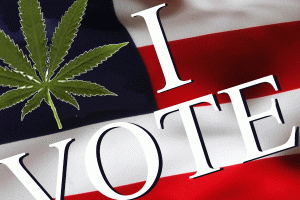It was November of 2012 when Colorado voters said yes to legalized Cannabis for adults 21 and over. The team at FLCAN was in Colorado that November, returned for a fact-finding tour in 2015, and now, New Frontier Data has created this great meme with some key indicators. Read the complete story from New Frontier Data here.

There are some very significant differences between Colorado and Florida, so no comparison will ever be more accurate than apples to oranges. Just as a note, Colorado is roughly a quarter of the population of Florida. Unlike Florida, prior to the passage of the Colorado Medical Marijuana laws, cannabis possession was already a low law-enforcement priority. The creation of the Medical Marijuana program in Colorado actually created laws and rules that required more assets to be used for enforcement than before the laws were passed, according to the Denver Office of Marijuana in 2015.
In 2012, FLCAN president Cathy Jordan (president 2011-2016) and I traveled to the Drug Policy Alliance bi-annual conference. The celebratory mood was tampered by the reality of being in Colorado in late November. The hotel was enforcing a strict no smoking policy, a $250 cleaning deposit, and removed from the hotel. It was cold and windy outside. It was also illegal to smoke in public and that was being enforced. Sales hadn’t begun yet, so there was no access for adults. Even an adult like Cathy, who lives in a wheel-chair could not drop in off the street and purchase Cannabis through their Medical Marijuana system without a state recommendation.
By 2015, I likened the Colorado legalization scheme to a shooting gallery at the arcade. The rules were changing so fast compliance was like shooting at a moving target. FLCAN’s leadership team met with the director of the Mayor’s task force on Cannabis, visited several dispensaries, toured Mary’s Medicinal’s original factory, and viewed a small grow. The city of Denver was spending more on enforcement dollars than it was drawing down in tax dollars from the state. The tightly regulated Cannabis sales demanded more agencies to devoted resources to enforcement. The plant count limits meant a job counting plants, a job transporting seized plants, and another job-destroying them. A Colorado-based county manager once lamented on the cost of special vans just for transporting seized plants from legal grows (they took only the overage). The job required a special van because of the lingering smell of Cannabis.
Despite the burdensome costs to enter the Cannabis market in regulated states, Colorado has a booming market. At 19% of the population of Colorado consuming at least every 30 days, that could translate to over 4 million consumers in the Florida market each month. Should Florida see the same average transaction of $67.00 and those 4 MM people only bought once a month, Florida would be generating nearly 300 MM in revenue each month.
Adding a 3 billion dollar industry to Florida’s economy isn’t going to change much. Merchandise exports shipped from Florida totaled $56 billion in 2019. International trade is the third-largest industry in Florida according to Investopedia.com. How we tax Cannabis won’t make a huge impact on the Florida state budget, but it will make an impact on consumers- specifically patients and those on a fixed income.
The discussion of taxation is an important one as states make the transition from medical-only to adult use. The FLCAN Legislative Team lead the fight for tax-free medical marijuana. From the first discussion, our leadership team was loud and clear. Florida does not tax medicine. We enlisted allies like the AARP to reinforce that message. The Florida agricultural community enjoys millions of dollars in tax-exemptions, so taxing a plant that medicine is derived from, was a non-starter.
Being sick sucks. Cathy Jordan often talks about the handicapped tax. Handicapped accessible doorknobs even cost more. Next time you are at a home supply store, check it out. The one you open lever-style costs more than a knob. It may not matter to me; but, when your hands don’t work, it is the price of freedom.
Watch for my next blog on the impact of taxes and market share on patients in a legal Cannabis market.
The views in this blog belong to Jodi James, some members of FLCAN may not agree with some or all of its content.






Leave a Reply
Your email is safe with us.